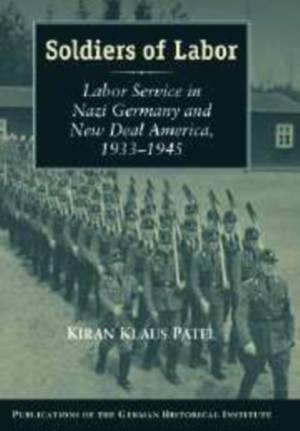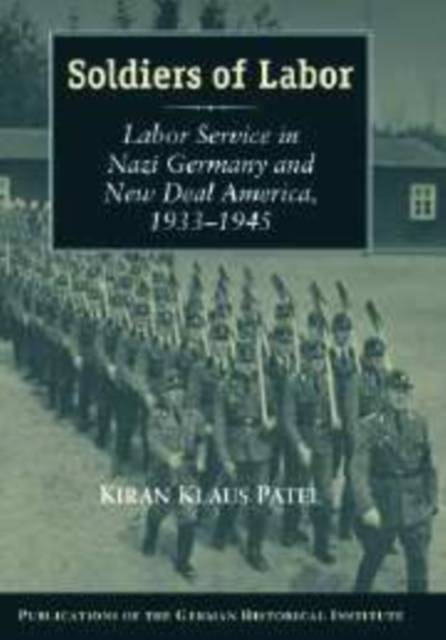
Bedankt voor het vertrouwen het afgelopen jaar! Om jou te bedanken bieden we GRATIS verzending (in België) aan op alles gedurende de hele maand januari.
- Afhalen na 1 uur in een winkel met voorraad
- In januari gratis thuislevering in België
- Ruim aanbod met 7 miljoen producten
Bedankt voor het vertrouwen het afgelopen jaar! Om jou te bedanken bieden we GRATIS verzending (in België) aan op alles gedurende de hele maand januari.
- Afhalen na 1 uur in een winkel met voorraad
- In januari gratis thuislevering in België
- Ruim aanbod met 7 miljoen producten
Zoeken
€ 79,45
+ 158 punten
Uitvoering
Omschrijving
Originally published in 2005, Soldiers of Labor is a systematic comparison between the labor policies of the Nazi dictatorship and New Deal America. The main subject of the book is the Nazi Labor Service (Reichsarbeitsdienst), a public work scheme that provided work and education for young men. Here, the organizational setup, the educational dimension, and its practical work are extensively examined. Originally, the institution was an instrument in the fight against unemployment at the end of the Weimar Republic. After 1933, it became a Nazi propaganda tool that ultimately became involved in the Nazi's war of extermination. This study examines the similarities and differences, the mutual perceptions, and transfers between the Nazi Labor Service and its New Deal equivalent, the Civilian Conservation Corps. Patel uncovers stunning similarities between the two organizations, as well as President Roosevelt's irritating personal interest in the Nazi equivalent of his pet agency, the CCC.
Specificaties
Betrokkenen
- Auteur(s):
- Uitgeverij:
Inhoud
- Aantal bladzijden:
- 462
- Taal:
- Engels
- Reeks:
Eigenschappen
- Productcode (EAN):
- 9780521168663
- Verschijningsdatum:
- 9/09/2010
- Uitvoering:
- Paperback
- Formaat:
- Trade paperback (VS)
- Afmetingen:
- 152 mm x 229 mm
- Gewicht:
- 671 g

Alleen bij Standaard Boekhandel
+ 158 punten op je klantenkaart van Standaard Boekhandel
Beoordelingen
We publiceren alleen reviews die voldoen aan de voorwaarden voor reviews. Bekijk onze voorwaarden voor reviews.









